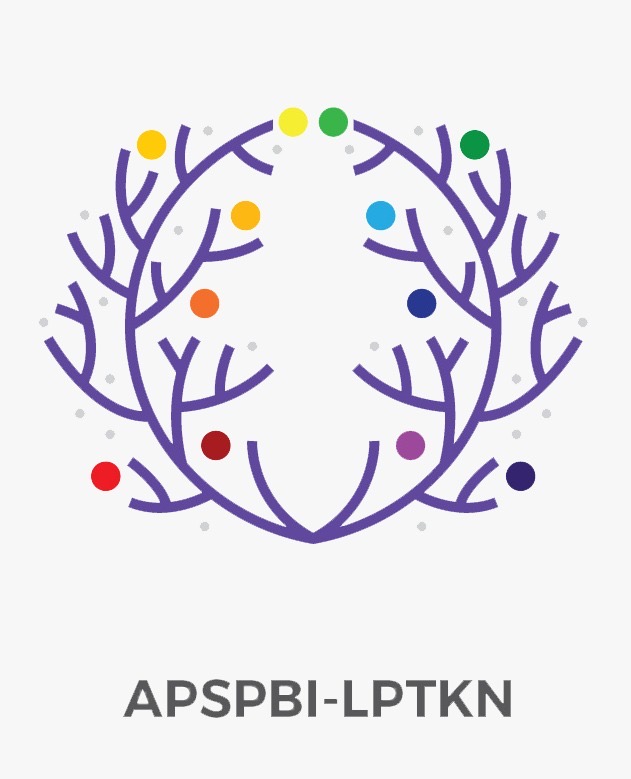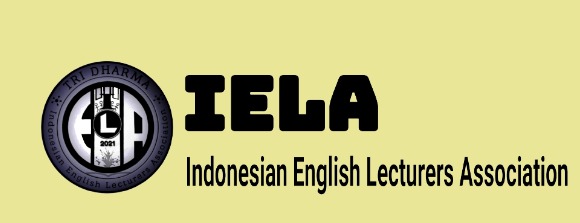IMPROVING STUDENTS’ VOCABULARY MASTERY BY USING SONG LYRIC AT MTS NURUL YAQIN TONDANO
 ), Paula Rombepajung(2), Allowysius Rettob(3),
), Paula Rombepajung(2), Allowysius Rettob(3),
(1) Universitas Negeri Manado
(2) Universitas Negeri Manado
(3) Universitas Negeri Manado
 Corresponding Author
Corresponding Author
Abstract
This research aims at describing students’ achievement of vocabulary mastery, and is conduct at MTsS Nurul Yaqin Tondano in the academic year 2019-2020. One class in the first grade is selected as the subject of the experiment. The class consists of 25 students. These students are the participants in this study. The writers use the pre-experimental design with one class pre-test and post-test. It is quantitative research. The test or data collecting instrument to use in this research is a self-made vocabulary test in fill-in format. The result of computing the data analysis of mean score in pre-test and post-test there is a significant difference. The means of pretest and posttest data are 3.1 and 4.9 respectively, and the standard deviations of pretest and posttest data are 1.3 and 1.2 respectively. It could conclude that the use of song lyrics as a teaching technique improve student’s vocabulary mastery is considering effective because it would create conducive and active learning condition which then motivate students to improve their vocabularies.
Keywords: Vocabulary Mastery, Song lyric.
References
Ahmadi, Khoiru, Lif. Dkk. (2011). Strategi Pembelajaran Sekolah Terpadu. Jakarta: Prestasi Pustaka.
As. Hornby. (1986). Oxford Advanced Learners’ Dictionary of Current English. England.
Degrave, Pauline. (2019). Music in the Foreign Language Classroom: How and Why? UCLouvain, Belgium Journal of Language Teaching and Research, Vol. 10, No. 3, pp. 412-420, May 2019 DOI: http://dx.doi.org/10.17507/jltr.1003.02.
Finocchiaro, M, & M. Bonomo. (1973). the Foreign Language Learner A Guide For Teacher. New York: Regent Publishing Company, Inc.
Gushendra, Rizky. (2017). The Improving Students Vocabulary Mastery by Using English Song at SMPN 1 Kampang Timur.
Hejjawi, K. Linna. (2007). Teachers’ and Students’ Attitudes Toward the use Of Music in Use English Language Classrooms. American University of Sharjah.
(http://dictionary.reference.com/browse/music?s=t
Iin, Susanti, Evi. (2012). Improving Students’ Vocabulary by Using Song and Game. At the: SD Kristen Kanaan Sungai Raya Dalam.
Jensen, E. (2000). Music with The Brain In Mind: Enhance Learning With Music. San Diego, California: Corwin Press.
Kridalaksana, Harimurti. (2008). Kamus Linguistik Jakarta: PT Gramedia Pustaka Utama.
Malekian, Sahar. (2016). the Relationship between English Songs and Learning Vocabulary. International Journal of African and Asian Studies, ISSN 2409-6938, An International Peer-reviewed Journal Vol.20, 2016. www.iiste.org.
Masri, Sulaiman. Dkk. (2007). Manajemen Pendidikan. Bandung: ROSDA
Murphey, T. (1990). The Song Stuck in My Head phenomenon: A melodic din in the LAD? System, 18(1): 53-64.
Nisanci, Ibrahim. (2013). Using Authentic Songs to Teach English: An Analysis of Students’ Perceptions. Dicle University.
Nguyen, T, Cam. & Nguyen, Buu, Huan. (2020). Teachers' Perceptions about Using Songs in Vocabulary Instruction to Young Language Learners. Aston English Language Center, Vietnam School of Foreign Languages, Can Tho University, Vietnam. Universal Journal of Educational Research 8(6): 2678-2685, 2020 DOI: 10.13189/ujer.2020.080652, http://www.hrpub.org.ss
Nurgiyantoro, Burhan. (2001:213). Penilaian Dalam Pengajaran Bahasa & Sastra. Edisi ketiga. Cet. Pertama. Yogyakarta: BPFE.
Ranggen, R, Bagas. (2016). Students’ Perceptions on the Support of English Songs to Students’ English Developments. Sanata Dharma University Yogyakarta.
Phisutthangkoon, Kittiya. (2016). Effectiveness of English Song Activities on Vocabulary Learning and Retention. Rajamangala University of Technology Srivijaya, Thailand Metas Panich.
Schön, D., Boyer, M., Moreno, S., Besson, M., Peretz, I. & Kolinsky, R. (2008). Songs as an aid for language acquisition. Cognition, 106(2): 975–983.
Scoot, Calum. Maguire Jon, &Sanders, J. Corey. (8 -1 – 2018). You Are The Reason. British.
Spicher, L. & Sweeney, F. (2007). Folk music in the L2 classroom: Development of native like pronunciation through prosodic engagement strategies. Connections, 1: 35–48.
Tuckman, W. Bruce. (1999). Conducting Educational Research. Harcourt Brace College Publishers.
Wallace, J. Michael. Guiford, & K. Lynn. (1982). Teaching Vocabulary. London: Bridles ltd.
Yun J., Ulrich, D. (2002) Estimating measurements validity: A tutorial. Adapted Physical Activity Quarterly, 19, pp. 32–47.
Article Metrics
Abstract View : 1302 times
: 1302 times Download : 199 times
Download : 199 times
DOI: 10.36412/jellt.v4i2.2409
Refbacks
- There are currently no refbacks.
Copyright (c) 2021 Journal of English Language and Literature Teaching

This work is licensed under a Creative Commons Attribution-ShareAlike 4.0 International License.









